Merely saying the word “Morocco” conjures up thoughts of expansive orange deserts, ornate mosques, tasty tagines and fragrant spice shops. However, safety also comes to mind, and you might wonder, “Is Morocco safe to visit?”
While tourism in Morocco has grown over the last few decades, you should still be aware of safety concerns and take regular precautions as you would traveling anywhere. You also need to understand the cultural differences you’ll experience visiting a predominantly Muslim country.
But with knowledge, preparation and sound judgment, you can make your memorable journey to Morocco a safe one.
Is it Safe to Travel to Morocco?
Whether you’re navigating the medinas or navigating cultural norms, you need to consider Morocco safety concerns. This is not because Morocco is a notoriously unsafe destination but, rather, because Morocco is arguably culturally a lot different than destinations on the beaten path.
Morocco is a predominately Muslim country. This means that laws, behaviors and social etiquette are vastly different in comparison to many Western cultures. For example, in many areas of the country, you won’t find couples showing any public displays of affection, and you’ll find that people dress very conservatively.
While some cities are more liberal than others (like Casablanca and Marrakech, for example), others keep traditional.
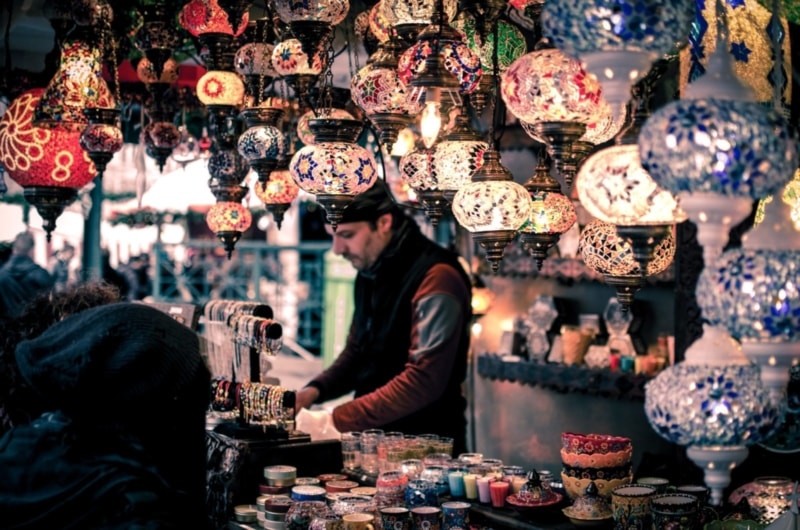
Safety in Morocco is also extremely subjective. There are many factors that can influence your safety: Your gender, your sexuality and even your race can affect how you are treated. Some women may experience street harassment, for example. Some cities are still homophobic. And racism is still rampant in some areas of the country, as witnessed mostly by Nigerian migrants — so your race may also play a role in how safe you feel.
Moroccan cities really do vary in safety levels. While some places will welcome you with open arms, some others tend to be a bit more dangerous for tourists to visit, mostly because of the aforementioned views on gender, sexuality and race, as well as poverty and ensuing theft.
And, just like anywhere else in the world, accidents (and, yes, crime) can happen. As such, there are certain precautions you can take in order to ensure your safety during your trip to Morocco. Before you travel to Morocco, you should familiarize yourself with the local laws and customs if you want to stay safe.
Is Morocco Safe to Visit Right Now?
Over the last few years, Morocco has grown to become a popular destination for many travelers and backpackers. However, both the United States government and the United Kingdom government have increased their travel security warnings in 2019 for citizens traveling to Morocco.
But despite these warnings, many people still consider Morocco to be one of the most peaceful countries in Africa.
Generally speaking, violent crimes against tourists are uncommon. For tourists, crime in Morocco is mostly petty. Because of these concerns, travelers need to be aware of pickpockets, thieves and especially scammers at all times.
Terrorism is also a significant safety concern for many travelers. And while terrorist attacks are uncommon, especially in comparison to other countries around the world, they’re still possible.
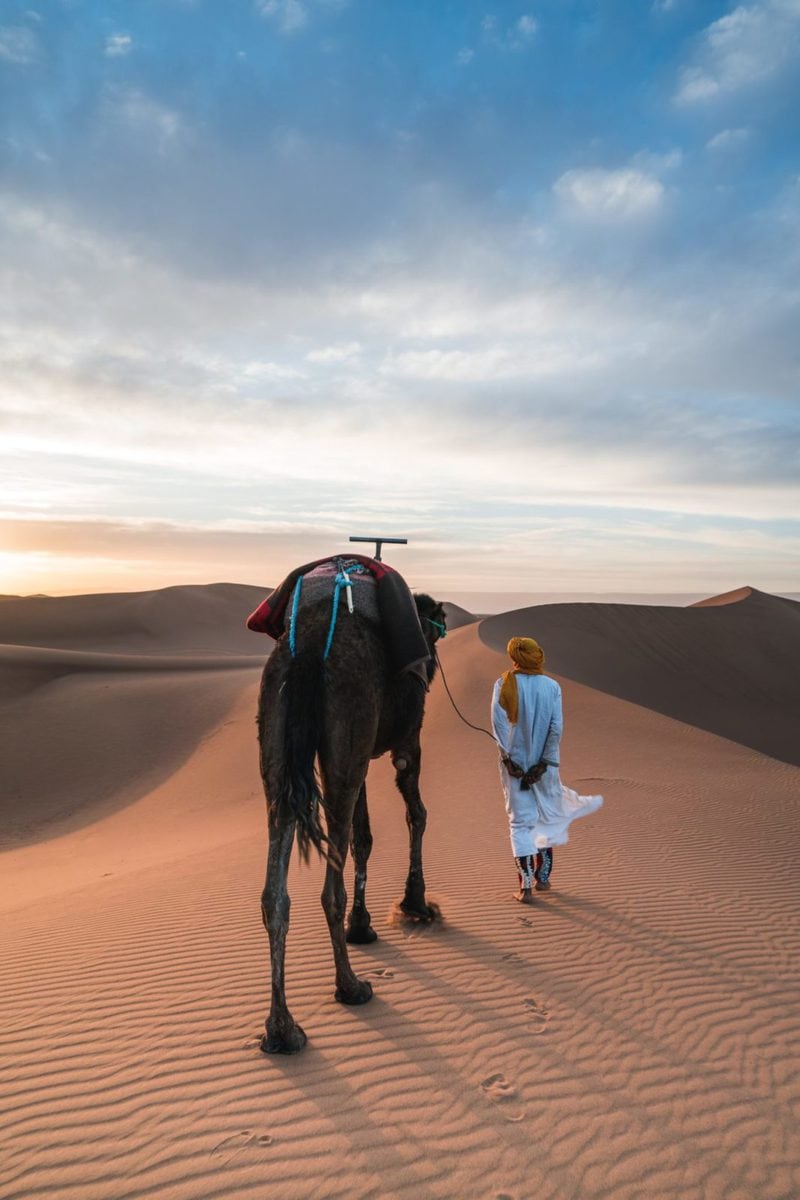
In the last 16 years, there have been four instances of terror-related attacks. But since 2002, the Central Bureau of Judicial Investigation has prevented over 350 terrorist attempts in Morocco. And for the first time since 2013, there’s been a decrease in the number of terrorism-related arrests.
There has also been an increasing number of demonstrations and protests, specifically in the capital of Rabat. And while they are mostly peaceful, travelers should avoid participating in order to stay safe. Also beware that if you try to take photos of such events, the police may aggressively confiscate your camera. In other words: Steer clear.
For all of these reasons, it’s important to invest in a good travel insurance policy for Morocco. It covers your lost and stolen property and provides emergency medical protection in case anything goes wrong on your trip.
Travel Insurance in Morocco
Travel insurance is the most important thing to take with you on your trip to Morocco. Whether you lose your sunglasses in the desert or get run over by a donkey (yes, it happens), accidents are unpredictable. So in fact, you should always travel with travel insurance no matter where you go in the world!
One of the most significant benefits of travel insurance is emergency medical coverage. That means you’ll have protection in case you get ill or sick and need to visit the hospital for care.
And if, for instance, you get food poisoning after eating bad lamb tagine, travel insurance will reimburse you for any medical bills or hospital costs. Of course, nobody wants to end up in the hospital. But when things go awry, you’ll be thankful to have travel insurance.
Additionally, pickpocketing and theft can be a big concern in Morocco. Well, travel insurance also covers your lost, stolen or damaged property. So if your camera gets stolen in a restaurant or even if the airlines damage your suitcase, you’ll be able to cover the costs of the lost items.
And, they even offer terrorism protection, in case you need to be evacuated or reimbursed in the rare instance of an attack.
Common Travel Scams in Morocco
There are a few common travel scams to look out for while traveling in Morocco (and, frankly, many other popular tourist destinations!)
Pickpocketing and Petty Theft
As with most cities around the world, pickpocketing and petty theft can be an issue. But it’s especially common in crowded markets and narrow streets. Think: Jemaa el-Fnaa, Marrakech’s medina square!
Pickpockets can work individually or in groups to steal your wallet, passport or other valuable items. For this reason, you should always be aware of your surrounding as well as of the people near you. But if someone does steal something, report it immediately to the local authorities.
The Friendly Neighbor Scam
One of the biggest travel scams against tourists what we like the call, the friendly neighbor scam. As you wander through the medina, an unsolicited local approaches you and offers to help you find your hotel or another attraction. And while they usually do get you to your destination, they will continue to harass you until they you pay them an expensive fee.
The Fake Guide Scam
Another version of this scam is the fake guide scam. This is when someone poses as an official tour guide and offers to take you around to local shops and restaurants. The shop owner pays the guide a commission fee, and you are left to argue with him or make a purchase (usually for fake or low-quality items).
The Counterfeit Product Scam
And speaking of counterfeit products, many shops in Morocco sell fake and overpriced goods. They may be advertised as expensive antiques but, in reality, they were mass produced in a nearby factory. Be extra cautious when purchasing local products, especially carpets, ceramics and Aragon oil that Moroccans know travelers love.
The Photo Scam
And finally, you should be extra cautious when taking pictures with animals and street performers, especially in Marrakech’s Jemaa el-Fnaa Square. Many times, the animal handler will place the snake or monkey in your hands without you asking, and then they’ll charge you for holding them. Or, they’ll ask for money even if they take a photo of you with your own camera.
Although there are many types of travel scams in Morocco, you can easily avoid them by staying alert. It’s okay to be cautious of overly friendly people or to ask for more information. (Just make sure you ask the right people for more information, or they’ll charge you for that information, too!)
The Henna Tattoo Scam
When traveling through Morocco, you should also be aware of the henna tattoo scam. It starts with a henna artist “accidentally” spilling ink on your hand without you noticing. Then, they offer to fix the mistake by giving you a full henna tattoo, usually for a high cost.
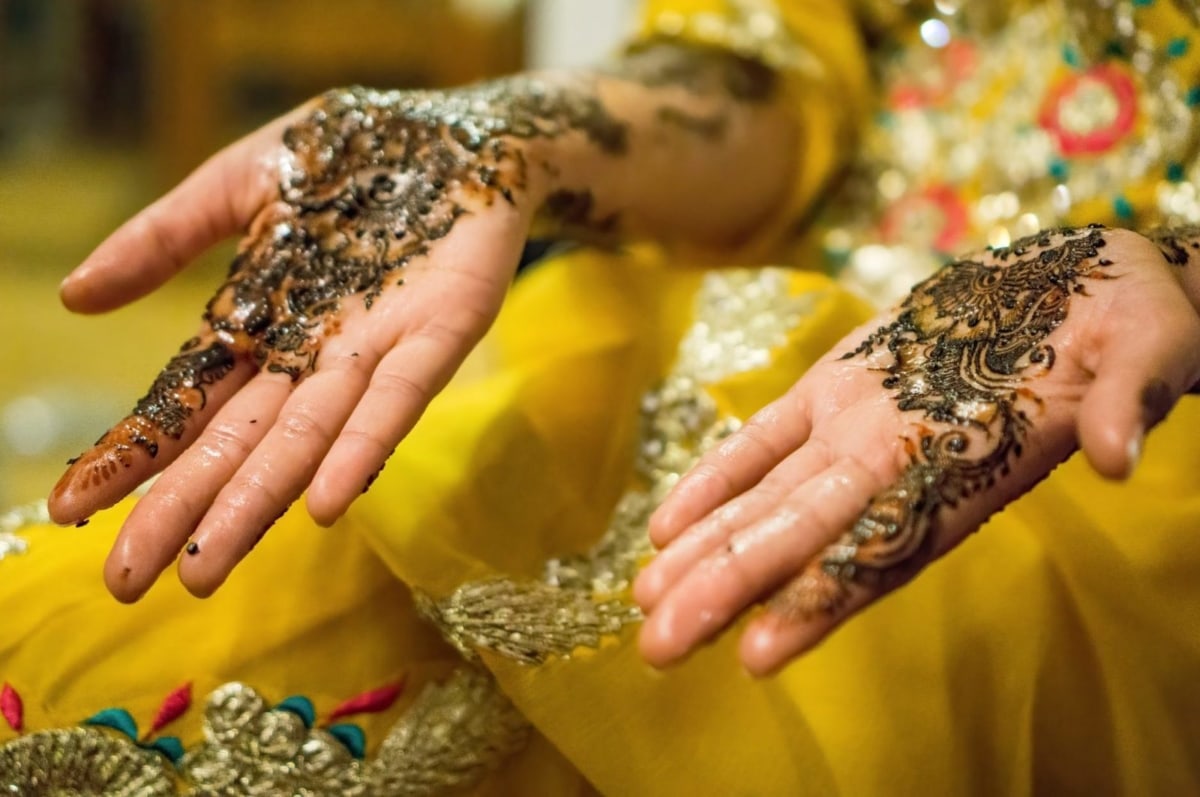
Morocco Safety Travel Tips by City
In Morocco, there are dozens of beautiful cities and villages to check off your bucket list. However, safety issues will vary depending on where in Morocco you plan to visit. And, there are specific travel safety tips to keep in mind when traveling to certain cities around Morocco.
Marrakech
As one of the most popular destinations on the Morocco circuit, Marrakech is a stimulating city for many travelers and backpackers. Its streets are filled with ancient mosques, lush gardens, and lively markets, also known as souks. And while it may seem chaotic and overwhelming to some, Marrakech is visually one of the most interesting places to visit in Morocco.
Due to its popularity with tourists, Marrakech is not immune to crime. You’ll likely encounter scammers and thieves in one form or another during your time in the Red City. And although violent crime is rare, you should still be aware of what to expect in terms of Morocco safety.
With the friendly neighbor scam, you might encounter a local offering to take you to your hotel or a souk. While he seems friendly at first, don’t expect him to help you out for free. And what’s even more annoying is that these scammers will follow you relentlessly through the streets if you seem lost.
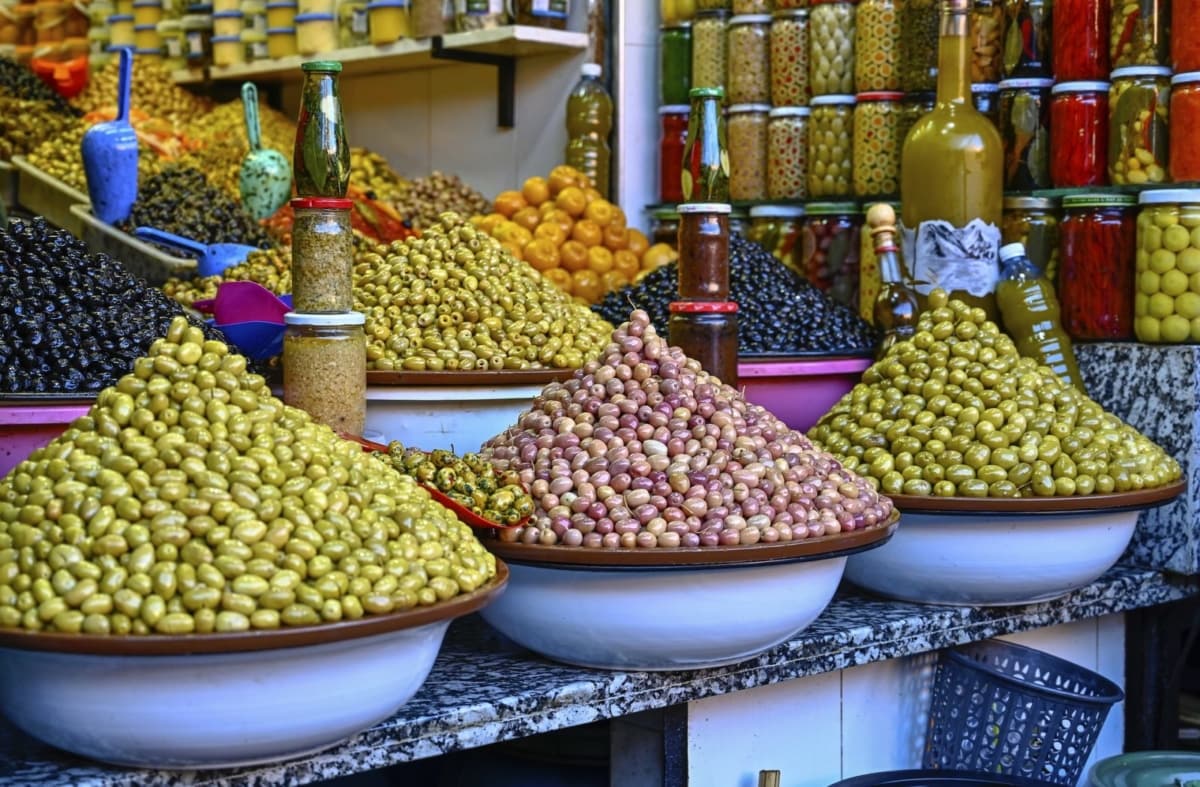
Our best advice, while difficult in the medina, is not to look lost. And if someone approaches you, politely decline and continue walking or to simply ignore the scammer altogether.
Marrakesh safety is also a concern at night. But with enticing food vendors and entertaining snake charmers, it might be hard to avoid the lively Marrakech nights. So if you do go out at night, try to be extra cautious about the people around you.
This is especially true in the bustling Jemaa el-Fnaa Square. Between the masses of people and the dark lighting, Jemaa el-Fnaa Square is the ideal spot for pickpockets.
Casablanca
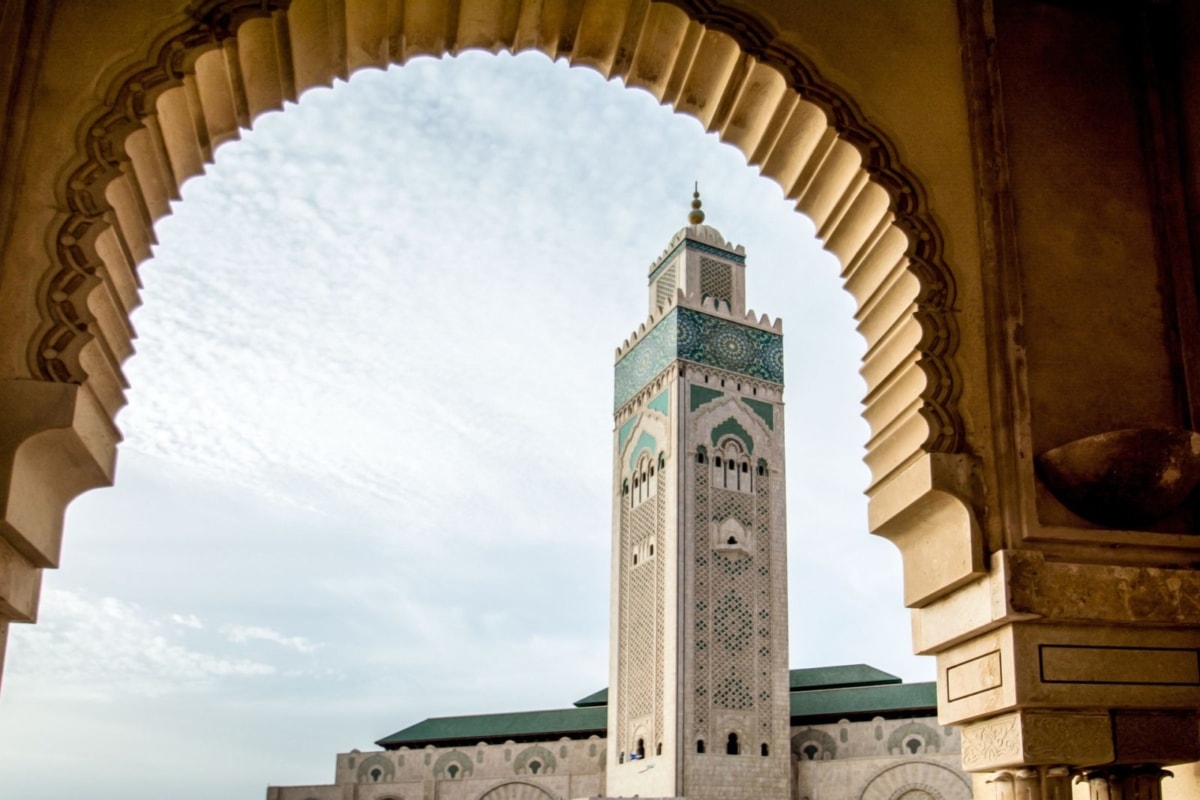
Littered with gritty, art deco buildings and shady palm trees, Casablanca feels more like a surfer town than a North African city. As Morocco’s largest city, Casablanca is an eclectic melting pot of diversity and culture. Generally speaking, Casablanca can be a safe place to visit if you take extra precautions.
Unlike most cities in Morocco, alcohol is much easier to find in Casablanca. Although it’s available in many restaurants, bars and hotels, booze is still a sensitive subject. Drinking in public is strictly forbidden, so don’t even think about cracking open a beer outside.
Petty theft and pickpocketing are also more common in Casablanca. Try not to walk around wearing expensive jewelry or carrying lots of cash, as robbery can happen even in broad daylight.
In fact, because Casablanca is known for its insane traffic, beware of motorbikers who’ll drive up on the sidewalks and snatch your bag right off your shoulder. Also just beware of the crazy drivers in general!
Fes
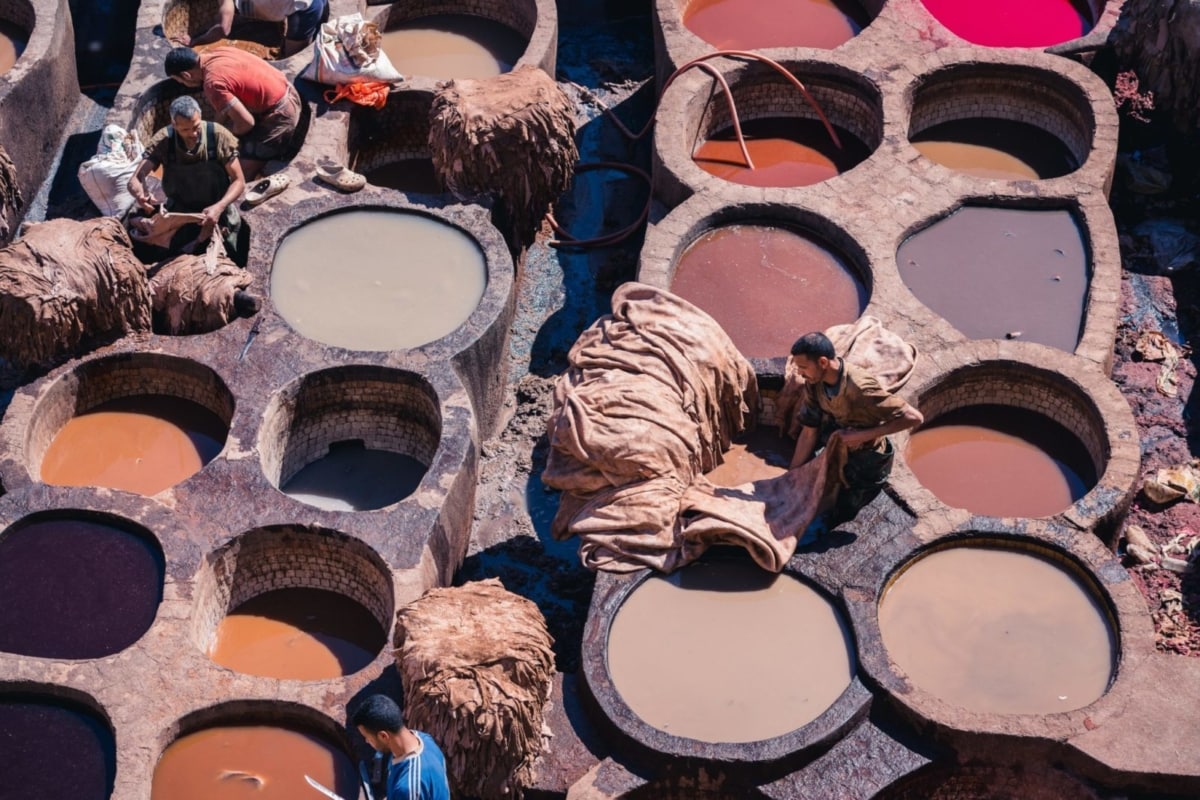
Known for its leather tanneries and bustling medina, Fes is one of Morocco best-preserved cities. With almost 1,500 years of history, Fes is a chaotic and exciting town full of markets, shops and historic ruins.
As with most major cities, pickpocketing can happen in Fes, especially in the narrow, crowded alleys of the medina. Remember to leave your valuables in your hotel, and to keep your purse and wallet close by at all times.
However, fake guide scams are by far a bigger threat to tourists. And while guides are usually not dangerous, their persistence, touching, and following can be overwhelming. To avoid their offers, act confident and look as if you know where you are going.
And if you plan to visit a leather tannery, be aware that you will find dozens of willing “guides” to show you around. They take you around the shop and share information about the leather dying process, for what they claim is free. However, you’ll feel the urge to tip them or purchase leather goods in their shop.
Rabat
The port-side city of Rabat is often overlooked for the more touristy destinations like Marrakech and Fes. But what Rabat lacks in tourist attractions, it makes up for in cleanliness and charm. With sandy beaches, ancient fortresses and gourmet cuisine, it’s also a great place to experience real Moroccan life.
When it comes to safety, you should always be aware of your surroundings when walking around the streets of Rabat. However, you should be extra careful when visiting attractions like the Kasbah of the Udayas and the Chellah Castle. There, you’ll find many locals acting as official guides who are eager to rip you off.
Tangier
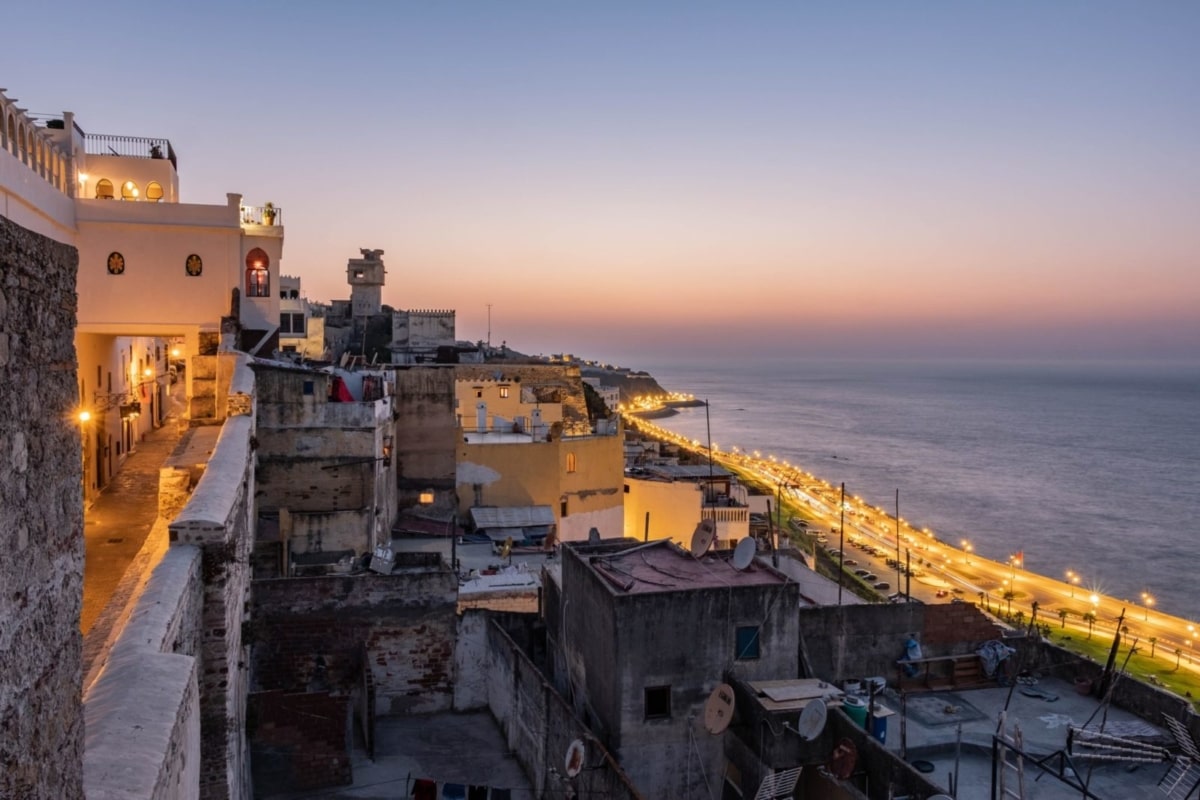
Often referred to as the Gateway to Africa, Tangier has been a desirable destination for artists, poets and writers for the last 60 years. Mixing African heritage with European influences, this beachside town is one of the most laid-back cities in Morocco.
Like most cities in Morocco, you should be aware of pickpockets and fake tour guides, especially in busy tourist destinations.
However, Tangier is more relaxed and more liberal than other places in Morocco. And with the beaches nearby, it might be tempting to wear more revealing clothing or even a bikini. But keep in mind that exposing your chest, legs, and shoulders is still frowned upon, even for foreigners.
Chefchaouen
With its bright blue buildings and charming, laid-back atmosphere, Chefchaouen is a popular destination for first time Morocco visitors. However, this Instagram-worthy town is home to more than it’s vibrant, colorful homes. Chefchaouen also happens to be the center of Northern Morocco’s marijuana industry.
Many travelers come to Chefchauen specifically for the abundance of pot, or kif, as the locals call it. But it’s important to note that marijuana and other substances are completely illegal. And if police were to catch you buying or smoking it, you might end up paying a hefty fine or even getting arrested.
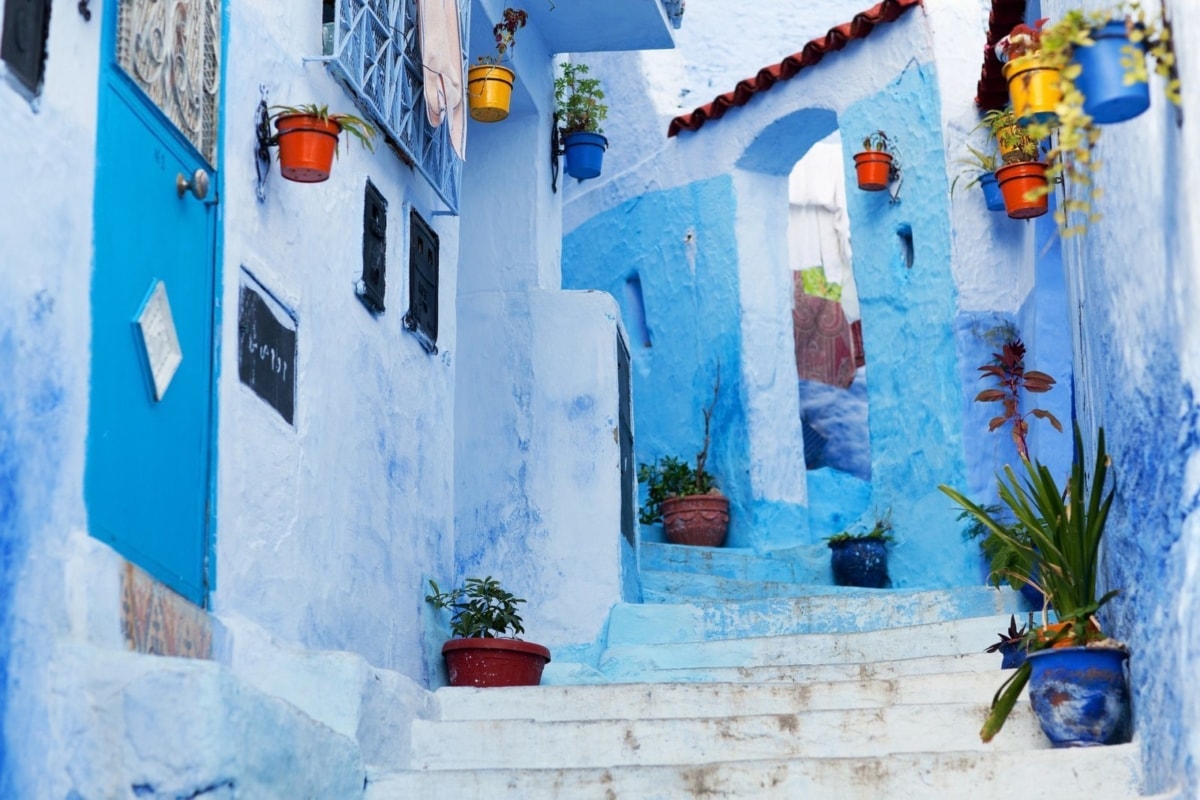
If you plan to hike around Chefchaouen’s Rif Mountains, remember that there are tons of marijuana plantations in the area. And while some farmers are eager to sell you their crop, others might not be as friendly if they find you trespassing!
But even in the city center, it’s easy to be scammed by the handicraft artists and shop owners. While Chefchaouen is known for its beautiful crafts, you need to be prepared to haggle! Many sellers quote the price far above what it’s valued, just because you’re a foreigner.
Is Morocco Safe to Travel Alone?
Most solo travelers will face the same issues that other tourist groups encounter. And although there are a few extra precautions to take, traveling alone through Morocco can be an amazing and rewarding experience.
Regardless of where you travel, it’s important to tell your family and friends about your plans and itinerary. And, make sure you have emergency contact information and the embassy phone number and address on you at all times.
But if you are traveling alone, try to avoid walking around late at night. Not only is it challenging to find your way through the unmarked alleys in the dark, but you’re also a bigger target for pickpockets and thieves.
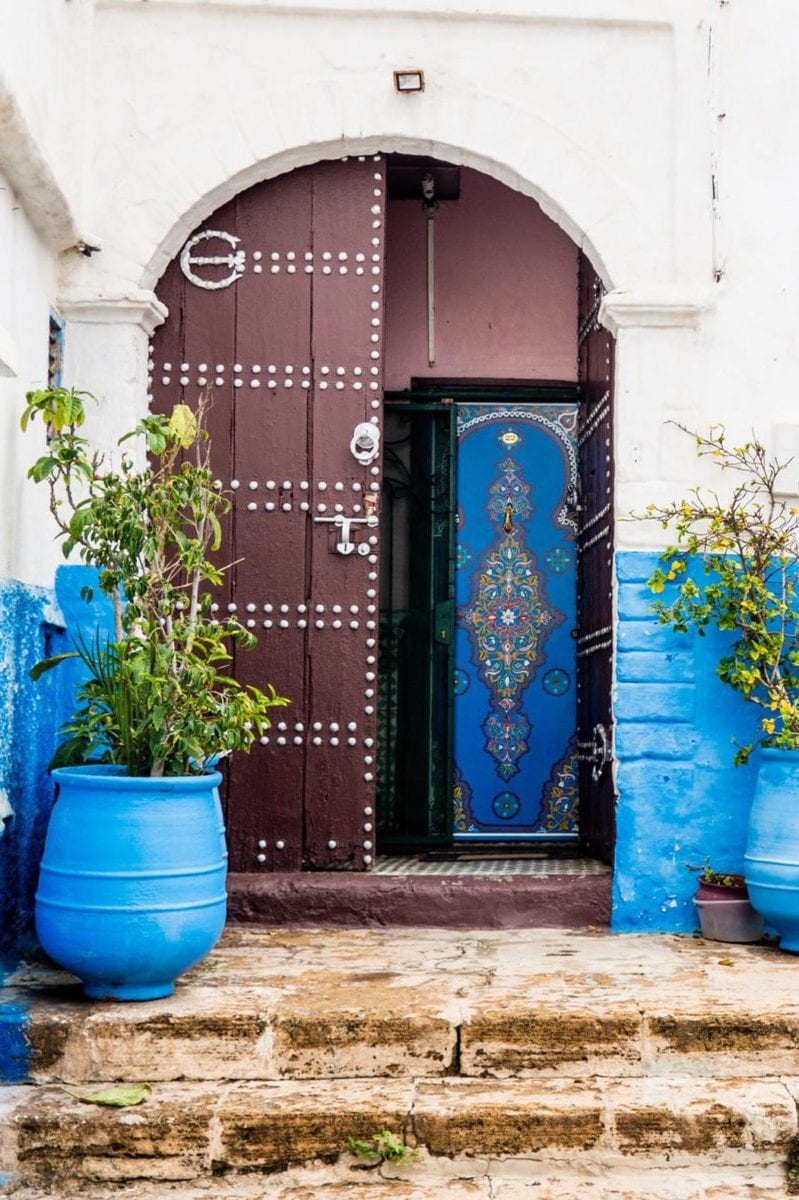
Instead of staying in a local riad or hotel, consider spending a few nights in a hostel. Not only are hostels more affordable, but you might also make a few friends to explore the city with! And in Morocco, it’s always safer to walk with a friend instead of alone.
The same goes for excessive drinking. Not only is it harder to find your way home in the dark, but being drunk also makes you a prime target for thieves.
Also, it never hurts to learn a few words in the local language. In Morocco, people speak Arabic and French in most major cities. Knowing how to say “hello” and “thank you” will go a long way with locals, and might even make you a few new friends!
Despite these warnings, Morocco is still a fascinating place, even for solo travelers.
Is it Safe for Americans in Morocco?
In Morocco, Americans do not face any specific dangers compared to other nationalities. As a matter of fact, Morocco continues to be one of the US’s oldest and most loyal allies in North Africa.
In 2019, The US State Department raised the Moroccan threat level for US citizens traveling to Morocco. Citizens are advised to exercise increased caution due to possible terrorist attacks in major cities and tourist locations.
And while this warning may seem severe, this advisory warning is only at level 2. There are many other countries with a level 2 warning for Americans, including France, Germany and the UK.
If you run into a Morocco safety issue, locate the nearest US embassy or consulate immediately. The US Embassy is located in Rabat, while the American Consulate is in Casablanca.
Although it’s uncommon that you’ll encounter a major safety issue in Morocco, social etiquette and expectations can also cause foreigners problems.
Moroccan culture can be very different compared to American culture, even in touristy and metropolitan cities. Therefore, it’s a good idea to pay attention to local laws and be aware of social customs in order to keep Morocco safety levels high. By adhering to local customs, you’ll earn the respect of others and avoid sticking out like a sore thumb!
Is Morocco Safe for Solo Female Travelers?
Generally speaking, women will feel comfortable traveling through Morocco alone. However, the biggest pain when traveling as a solo female in Morocco are the stares, catcalls and unwanted attention from local men. Sexual harassment has been an ongoing problem for Moroccan women, as well.
While we don’t like to tell women what to do (when the world should be telling creeps and criminals what not to do!), solo female travelers should be extra aware of their surroundings.
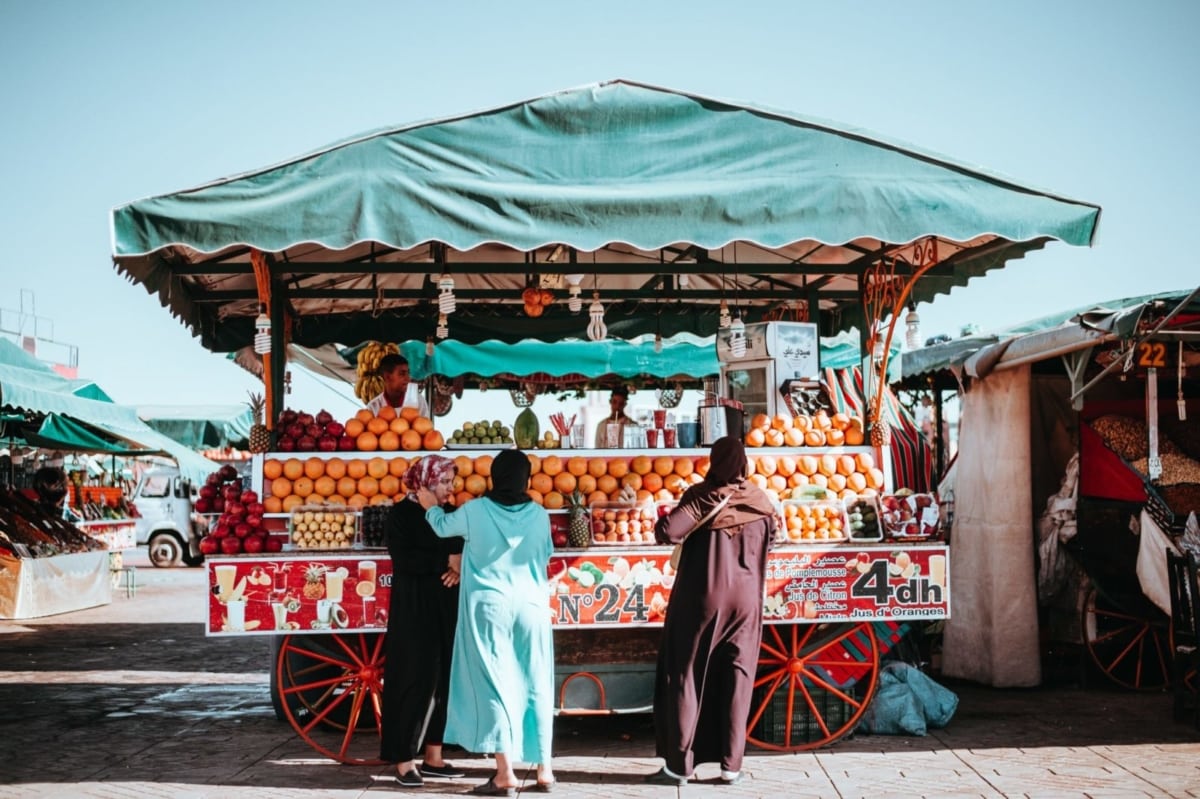
As far as Moroccan safety goes, Morocco is a predominately Muslim country, and modest dress is a sign of respect for Islamic culture. Most local women cover their shoulders, legs and cleavage, and while it can be tricky in the heat of the summer, you should always try to dress as locals dress to fit in.
When I first visited Marakkesh, it was a miserable 90 degrees and more humid than a sauna. In a desperate attempt to stay cool, I wore shorts, skirts and tank tops. I felt lingering stares everywhere I went, which, in my opinion, was more uncomfortable than wearing long clothes in the heat. So a good rule of thumb is to wear lightweight options, like sheer scarves and maxi skirts.
Also take solace in knowing that older Moroccan women are highly respected in the culture. So if you ever feel unsafe, turning to an older lady on the street to walk with you may make you feel more comfortable!
However, you shouldn’t let these issues deter you from visiting Morocco as a woman. As long as you abide by the social customs and keep an eye on your surroundings, you’ll have no problem staying safe.
Is the Water Safe to Drink in Morocco?
In Morocco, tap water is not safe for drinking.
You may hear conflicting opinions from locals about the water quality, as many of them drink tap water without any problems. However, you never know how your body will react to different chemicals and bacteria.
And if you’re traveling through the desert or spending the day sightseeing, staying hydrated can be a big issue. For this reason, you always travel around Morocco with bottled water and avoid drinking tap water in restaurants.
Another option is to travel with a Grayl Geopress filtered water bottle. It filters harmful bacteria and turns normal tap water into drinkable water. And best of all, it cuts down on the amount of single-use plastic bottles you’ll use when traveling!
Is the Food Safe to Eat in Morocco?
Morocco is a culinary country filled with unique ingredients and dishes unlike anywhere else on the planet. And while most foods are perfectly safe to eat, there are a few precautions you should take in order to avoid illness and upset stomachs.
The biggest cause of food-borne illnesses in Morocco is contamination. If you are eating in the market or a food stall, avoid dishes that have been sitting out in the sun. This is especially true for raw meats and dairy-based products, which taint Morocco safety levels.
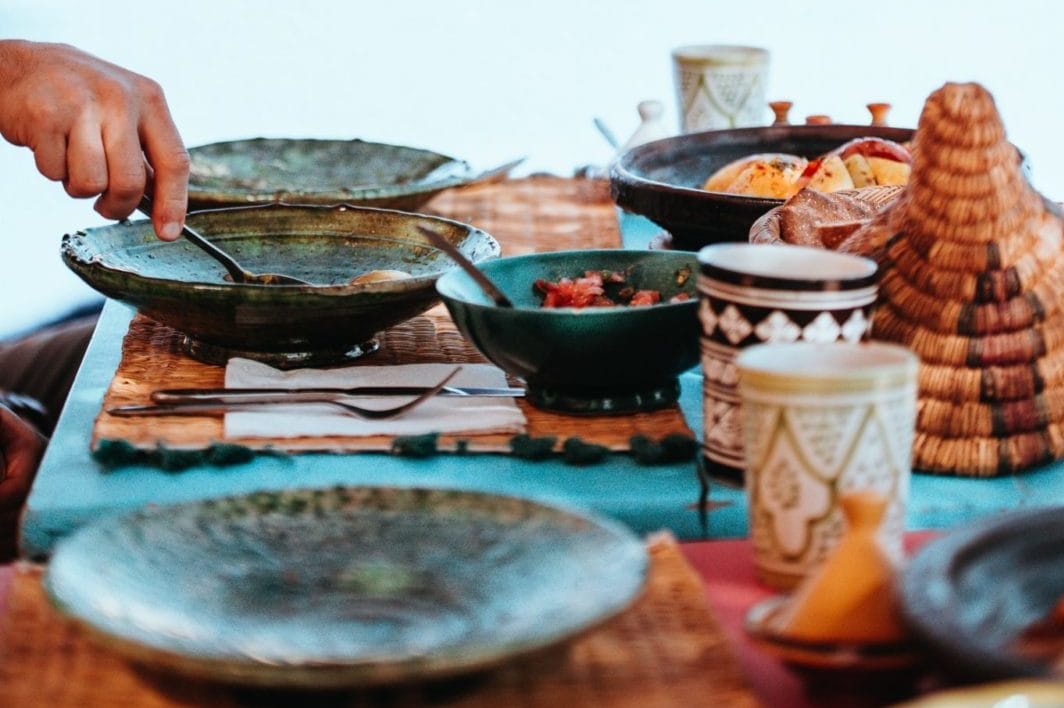
And this should go without saying but before you reach for the tangine, wash your hands with soap and water. Morocco can be extremely dirty and dusty in some areas, and you never know what harmful bacteria is lingering on your fingers!
When it comes to fresh produce, only eat fruits and vegetables that have been thoroughly washed, peeled, or cooked. Depending on the quality of the restaurant you’re dining at, you should also avoid fresh salads.
As an extra layer of caution, do your research before you eat at a restaurant or food stall. It’s a much safer bet to dine at place has a lot of good online reviews, or has a lot of people eating there.
Are Taxis in Morocco Safe?
Taking in Morocco is a popular and affordable way to get around town. In most cities, you’ll have a choice between taking a grand taxi or a petite taxi. Think of a petite taxi like your standard western cab. Grand taxis, on the other hand, will take you between cities or to smaller villages in the countryside.
To many travelers, taking a Moroccan taxi is a unique and somewhat thrilling adventure. The streets are chaotic, and drivers often ignore traffic lights and rules. And although you’ll arrive at your destination in one piece, it’s not the road safety that should be your primary concern.
Taxi scams, especially to tourists, is the real issue in Morocco. Some drivers might claim their meter doesn’t work, and attempt to charge you a flat, and often ridiculously expensive, fare. For this reason, only accept fares that have been calculated by the meter.
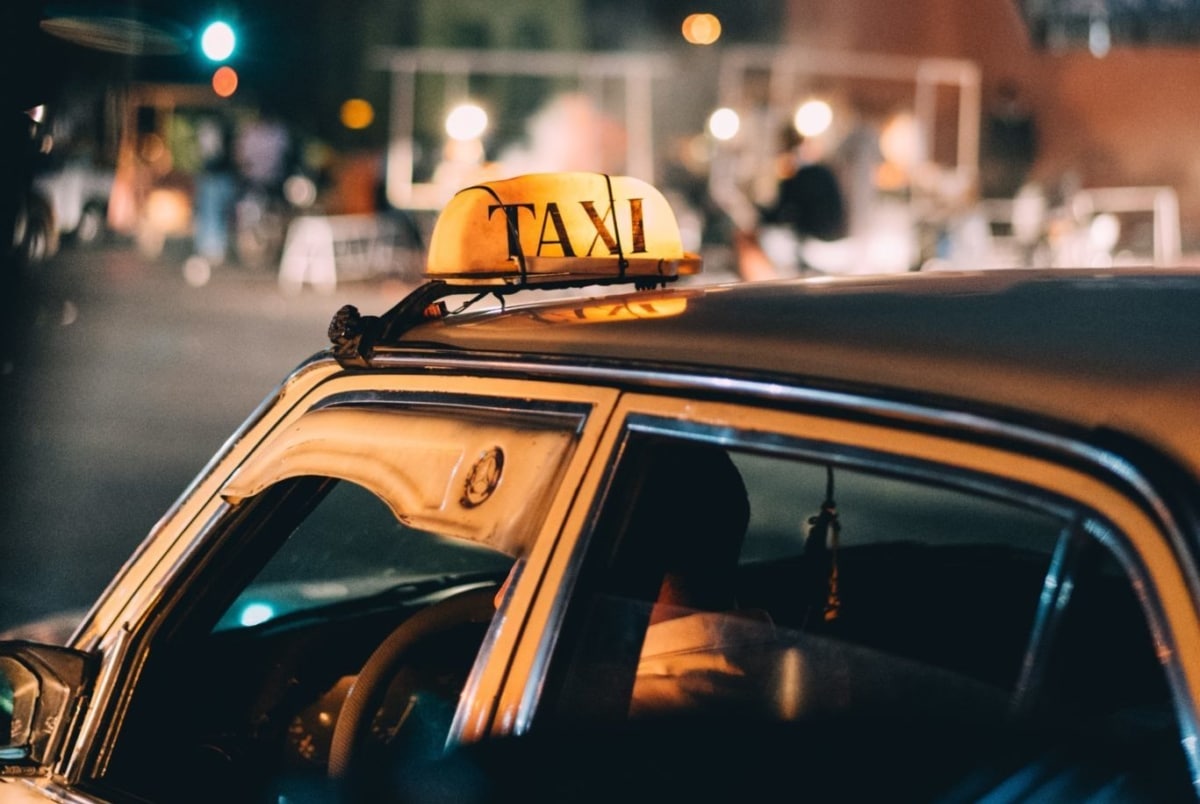
It’s also a good idea to keep the GPS and navigation on your phone when riding in a taxi. Drivers might take the long route to charge you extra or drop you off at a different location than what you initially discussed.
And don’t be surprised if your driver picks up another passenger while you’re in the car. It’s common to share taxis in Morocco, especially when traveling between cities using a grand taxi. Think of it this way—you’ll make new friends and save a few bucks by sharing your cab with others!
Is Morocco Safe to Live?
Planning to settle down in Morocco? Well, there are a few things to take into account in order to stay safe as an expat.
If you’re from a western country, the most challenging part of moving to Morocco will be adjusting to a different culture. There are different rules and different expectations to abide by when visiting or living in Morocco that factor into Morocco safety levels.
For instance, it’s illegal for unmarried couples to live together. And if you plan to get married in Morocco, you can expect a detailed police investigation. Although it’s not as intimidating as it sounds, the police will ask you about your relationship, health and financial history before they allow you to get married.
Morocco is also not a great place for gay or lesbian couples. Same-sex relationships and activity are illegal and punishable up to three years in prison.
But if you’re planning to move to Morocco, you’ll find pockets of expats scattered throughout the larger cities like Marakkesh and Rabat. And while most of the population is Arab or Berber, there are many French, American and Spanish citizens who have migrated to Morocco.
So, Is it Dangerous in Morocco?
After this, you still might be wondering, is it safe to travel to Morocco? Although it’s difficult to say point blank if Morocco is safe, many people visit and return unscathed. And for some, Morocco is one of the most peaceful and beautiful countries they’ve ever seen.
Crimes against tourists, while rare, can still happen. Even if you don’t have to worry about violent attacks, you should always be aware that pickpocketing and scams are significant issues in Morocco.
That’s why you should always review Moroccan customs and social etiquette rules before traveling there. And most importantly, you’ll want to protect yourself by purchasing travel insurance. If someone steals your bag or you have to see a doctor, you’ll have coverage for any financial risks and losses.
Basically, there’s no single answer that explains Morocco safety. Morocco safety will depend on what cities you visit, factors outside of your control like your gender, sexuality and race, as well as how alert you remain.
At the end of the day, Morocco is still a fascinating country that is absolutely worth visiting, whether alone or with a crew. As long as you pack your good judgment and good travel insurance, you’ll be prepared for whatever comes your way!
And we predict that’ll be a lot of gorgeous Mediterranean beaches, the expansive Sahara desert, the soaring Atlas mountains and a heck of a lot of hammam spa days when you’re in the charming cities.
GET A TRAVEL INSURANCE QUOTE TODAY
Safety in Morocco FAQs
How safe is Morocco for tourists?
Morocco is one of the safest countries in Africa, but scams and petty theft are still common problems for tourists.
Is it safe to go to Morocco as an American?
Generally, Morocco is a safe destination for American travelers. However, this can depend on your race, gender, sexuality, and the city you visit.
Is Morocco safe for female tourists?
Morocco is generally safe for female tourists, but you should definitely be aware of potential safety threats and stay away from certain areas.
Do they speak English in Morocco?
English is not the primary language of Morocco, but you will find plenty of people who can converse in English, especially in younger generations.
Is Morocco a Third World country?
Morocco is generally considered a “second-world country.”
